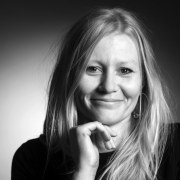Don't stop with awareness: target behavioural change & civic action
Commitment: Climate & biodiversity crisis
Is the contribution to social justice, global equality and planetary wellbeing one of the aims that defines a museum? While the international museum community is still in discord about the answer, there is certainly a growing number of museums and science centres that pick up responsibility for pressing ecological and social matters.
In this session, we try to step beyond the ideological questions and look at how the clear aim to create social or ecological change can lead to innovation in the design of the visitor’s experience and journey. What happens if we not only target awareness but behavioural change? Museums are great starting points to transfer awareness into action. It can lead us to re-think the visitor journey in the exhibition space, advance the design of visitor journeys that last well beyond the physical experience and open new roadmaps for cooperation, networking and common action in our communities.
Facilitator
Head of Research & Development
Session speakers
Project manager and exhibition developer
Positive Psychology delivers not only important insights into what makes us happy as individuals but also how we best flourish in relation to and with others, in organisations and in our societies as a whole. In this session we will give an example of how using this framework can help to design an exhibition for social change: a journey from “me”, the visitor, to the “we” of the actors of social changes and the visitor.
Visitors start where they are, with themselves. They are invited to discover their own potential through hands-on and minds-on interactions. Slowly, they are also connecting with others, peers who light up by combining their potential with meaning and purpose. An emotional connection is built with a cause and its actors. At the exit, visitors are then only one step away from taking action and starting a new engagement journey.
Exhibition Concepts & Didactics Consultant
curiocation - engineering insight
Let's face it: Neither will sound knowledge in climate change science, nor serious problem awareness and not even encouraged individual behaviour make the necessary change to reach the goals envisioned by the Paris 2015 agreement.
PUSH-institutions have so far avoided mixing science and politics. But - if appropriate political action is envisioned to become a key component in driving future policies, who should push it? Doesn't a multilayer problem demand for coordinated efforts across disciplines? Science Centers et al. have an unparalleled reach in public education, why shouldn't they use this potential?
Thomas is going to give some edgy inputs in what respect most climate change activities fail and proposes some new directions to be discussed in the panel.
In response to the planetary emergency, the Natural History Museum has a new mission to create advocates for the planet (people who act on behalf of nature). To achieve this, the Museum has created a theory of change model to link its interventions to intended behavioural outcomes. In this talk, I will discuss how this model has been designed and used as part of a Youth Advisory Panel for the Urban Nature Project. This panel, comprising local young people from ethnically diverse backgrounds, was designed to support them in discussing inequality of access to green space and resulted in the young people discussing these issues with a local environmental minister.




